Global Issues
Global food security issues and what we can do to tackle food insecurity for disadvantaged communities
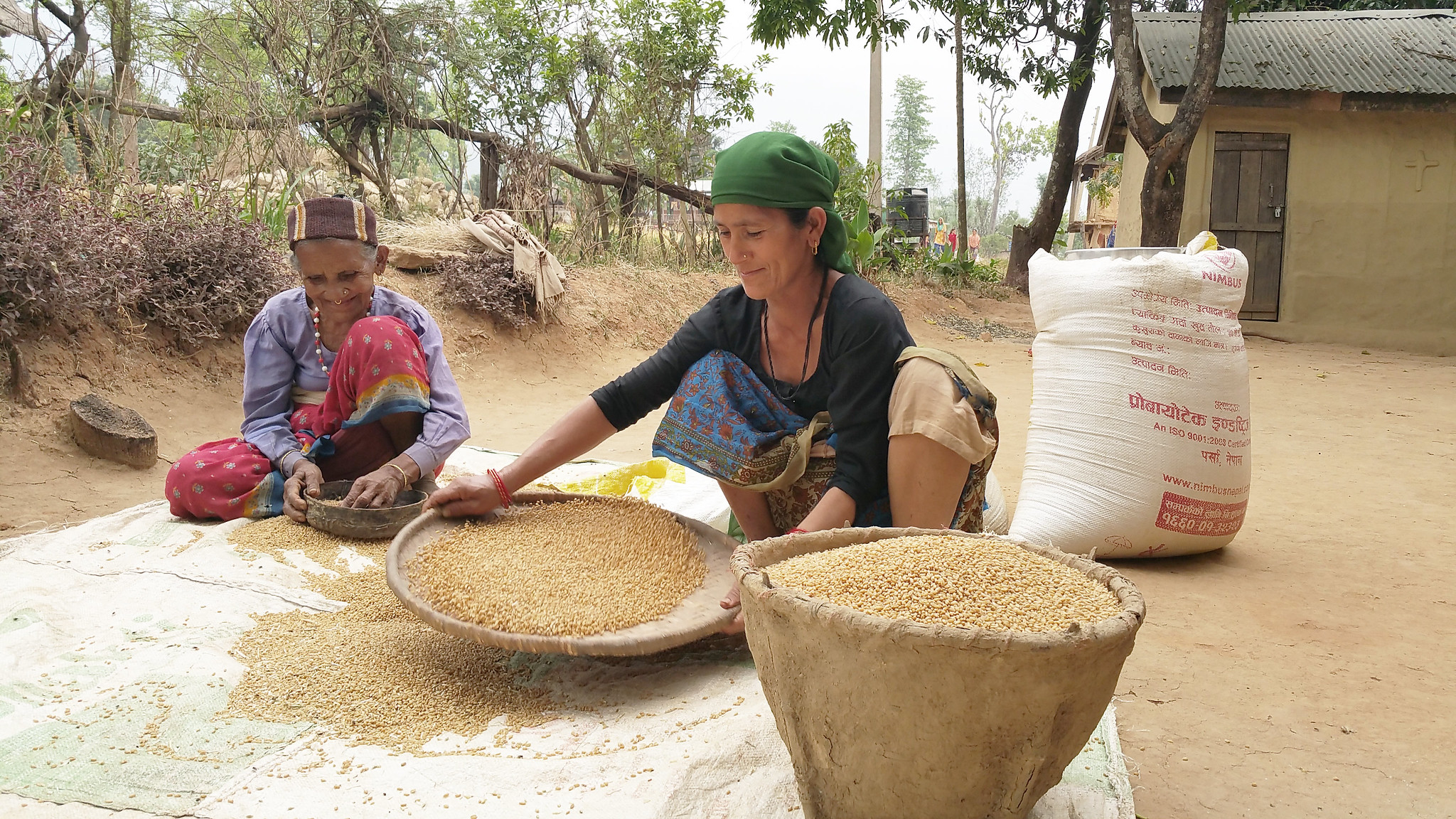
Nepal, 2018. Photo credit: Eleanor Trinchera/Richard Wainwright.
690 million
people go hungry every day.
135 million
people across 55 countries and territories are in a food crisis where they lack access to essential nutrition.
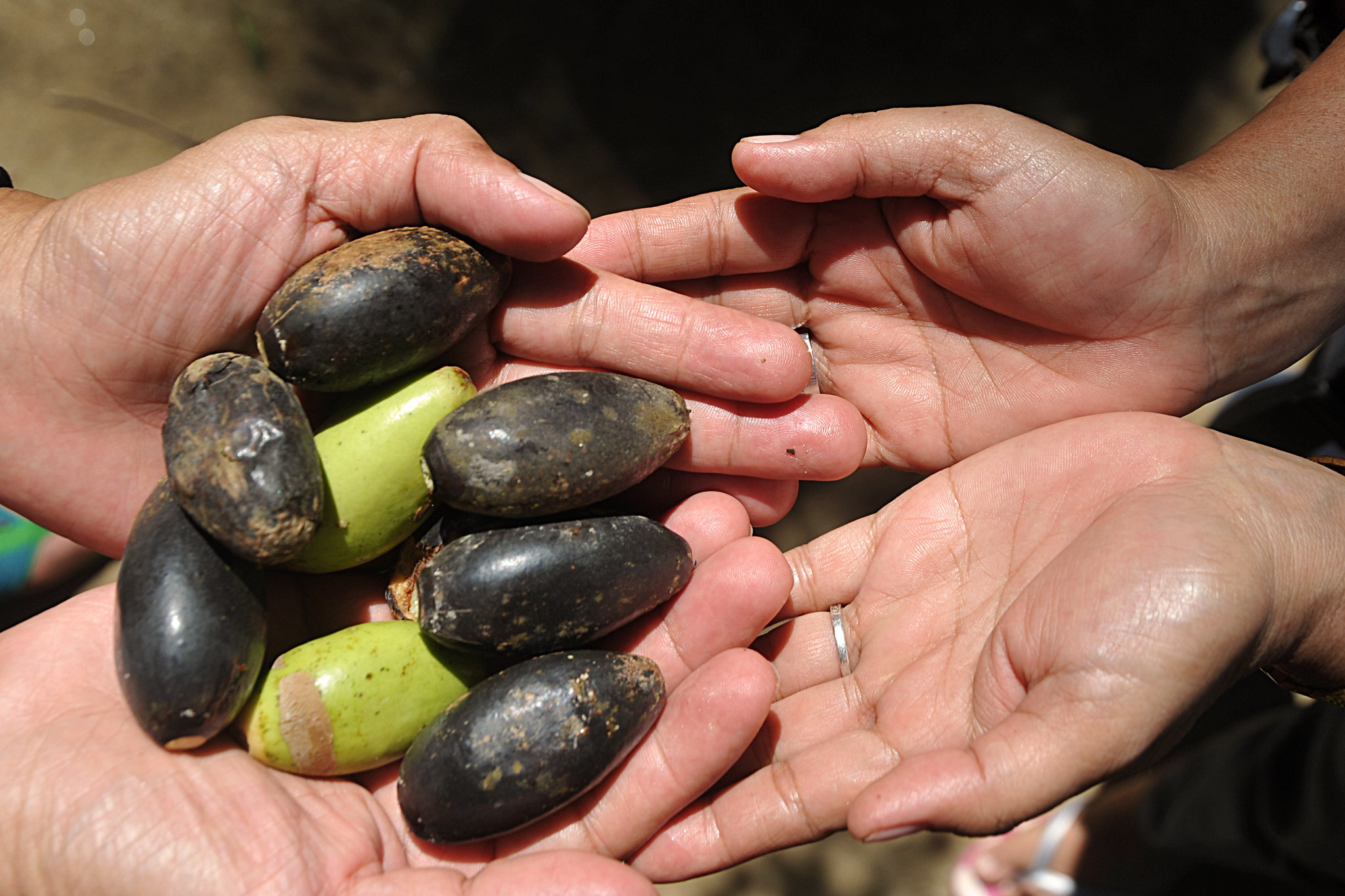
Photo credit: Kerryn Benbow/Caritas Australia.
What is the difference between food insecurity and famine?
Famine is extreme scarcity of food among communities or entire nations and is one of the foremost causes of world hunger. Food insecurity, on the other hand, is the inability of a community to quickly recover from or even be unaffected by the effects of famine.
War or economic crises severely disrupt the production and availability of food leading to acute food shortages and causing famines. Moreover, farming communities without sustainable agricultural methods or food security are among those that are affected the most, not only by malnutrition but also by the damaging effect on their livelihoods.
World hunger statistics indicate that in 2019 almost 690 million people had insufficient food to consume. Exacerbated by the COVID-19 pandemic and socio-economic decline, this number has been steadily on the rise, leaving the future dangerously uncertain and stretching the limits of global food security.
The difference between food security and food insecurity?
Food insecurity is the inability of a community to produce enough food for consumption or commercial purposes in the event of food shortages caused by drought, climate change, conflicts or global pandemics. It is likely to severely disrupt the lives of people by increasing their vulnerability to disease, malnutrition and falling into poverty.
Communities with food security can access enough food to sustain themselves despite external factors that can cause a decline in food production and availability. Food security contributes to the health and well-being of people in a community, enabling them to be more productive and concentrate their efforts on improving the quality of their lives.
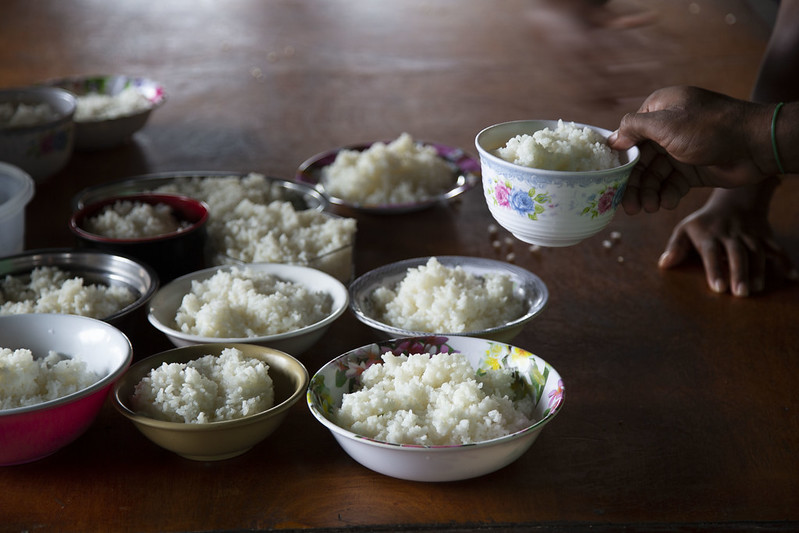
Kitchen at school in Malaita, Solomon Islands. Photo: Cassandra Hill/Caritas Australia.
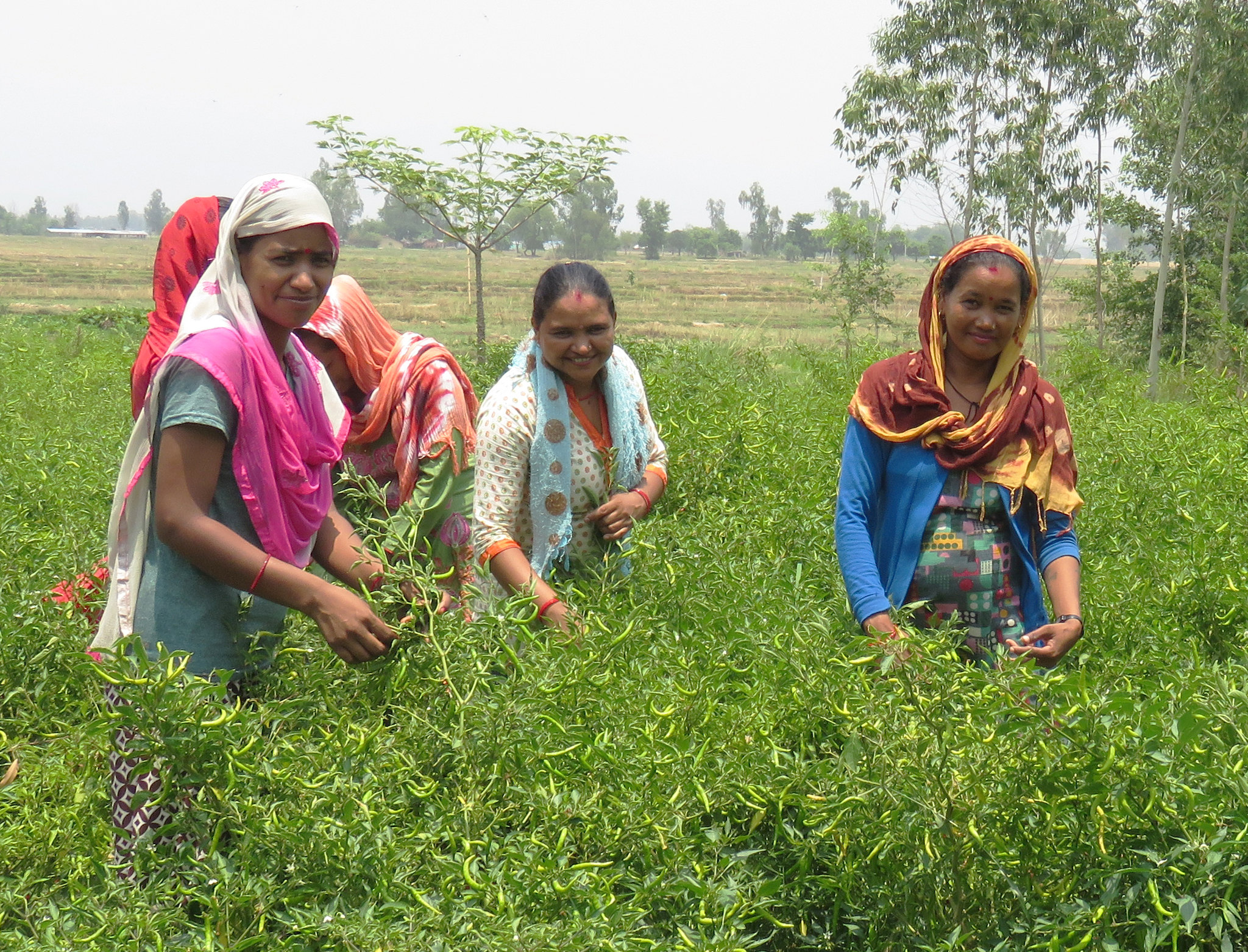
Nepal Livelihood and Resilience Program (NLRP). Photo credit: Eleanor Trinchera/Caritas Australia.
Why communities need food security to fight poverty
Food security is a powerful ally in the fight against poverty. It helps reduce a community’s vulnerability to disease and enables people to invest more time in building their livelihoods, strengthening their economy and caring for vulnerable community members. The relationship between food security and poverty and how they influence the other has always been under scrutiny because they can occur simultaneously in marginalised communities around the world.
Poverty and food insecurity form part of a vicious cycle that is crippling the progress of countless communities around the world. When a community that is already struggling with poverty has no food security, it affects the livelihoods, health and education of its people. This can influence areas such as crime, inequality, gender-based violence and child abuse.
Better availability and access to affordable and reliable food sources helps combat and reduce the effects of food crises. It ensures that the impact of food shortages on people in marginalised communities are minimised and helps keep local economies afloat during times of crisis.
What does global food security mean?
Global food security is an assurance that any country has access to food through the efficient flow of food resources, especially during events such as natural disasters or emergencies that can cause a food shortage.
Countries around the world are recognising the impact that trade has on global food security and nutrition and are working together to facilitate better trade and investment policies that can help bring about global food security.
For example, countries with a tropical climate are more likely to be affected by drought. However, the hot weather conditions may also favour the production of certain nutritious foods that could be exported. The streamlining of food production and storage can enable a country to remedy food shortages through affective trading.
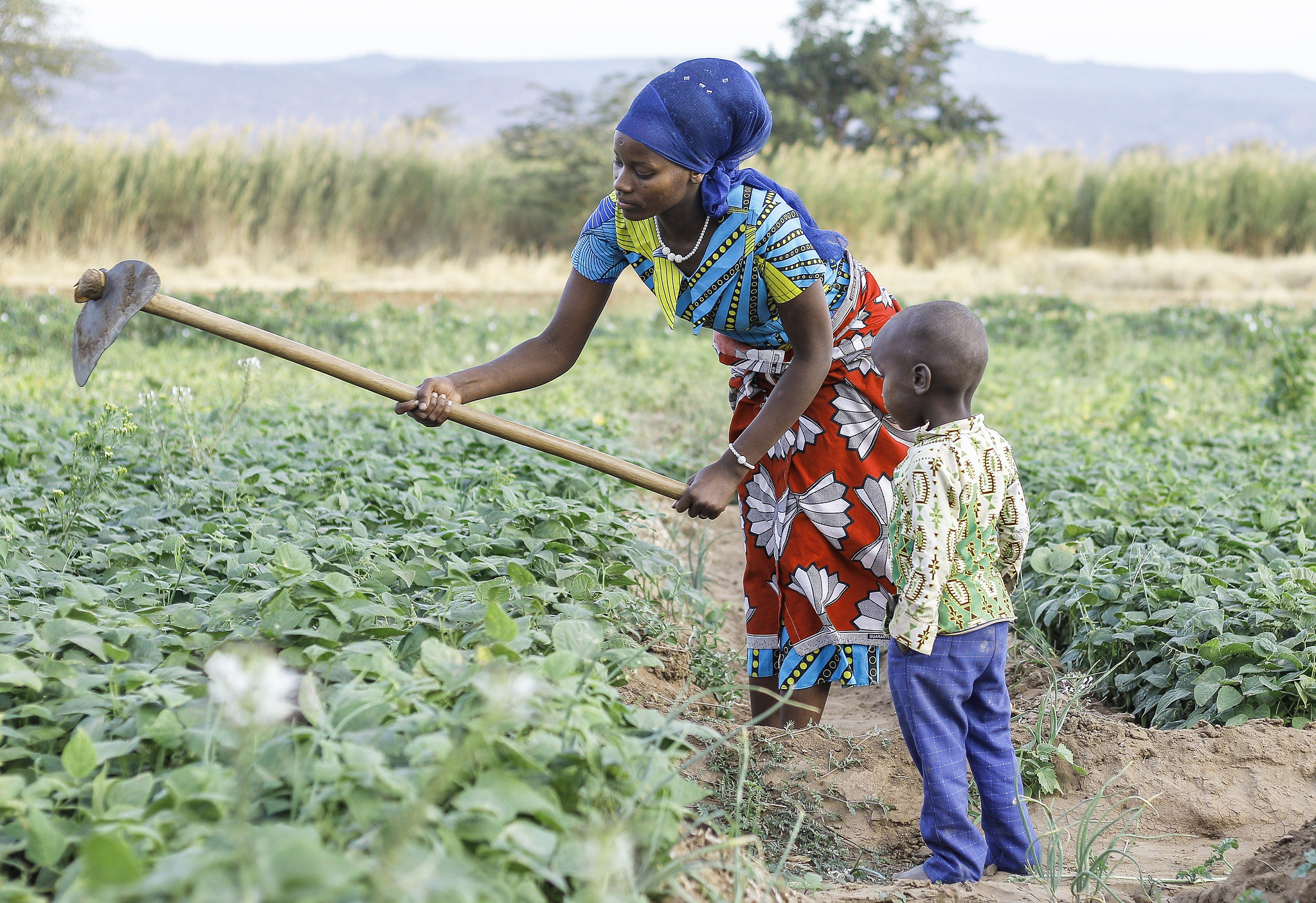
Oliva works in fields growing beans near her home in Karatu District in Tanzania, August 2020. Photo credit: Richard Wainwright/Caritas Australia.
How to tackle food security – what can we do?
Despite the challenges posed by food insecurity, countries and organisations around the world are rallying to help each other to overcome the looming threat of world hunger. For instance, the World Food Programme is working with organisations to address this issue by implementing 5 key solutions to food insecurity:
Prioritise
the food security of the world’s poorest communities through social protection schemes and by investing in inclusive development.
Improve
infrastructure such as roads and farming technology to help ensure agricultural trade and livelihood is well-supported.
Reduce
food waste at all levels by introducing improved storage facilities and building a sense of sustainability among communities.
Encourage
communities to diversify their food production and consumption to increase the availability of food at all times and decrease the ill-effects of malnutrition.
Promote
the importance of proper nutrition during the first 1000 days of a child’s life to boost their health and help ensure good development.
Video
Tawonga's story
Emergency food rations for families at risk of malnutrition
Clean drinking water and support for sanitation
Soap and hand sanitisers to help prevent the spread of COVID-19












